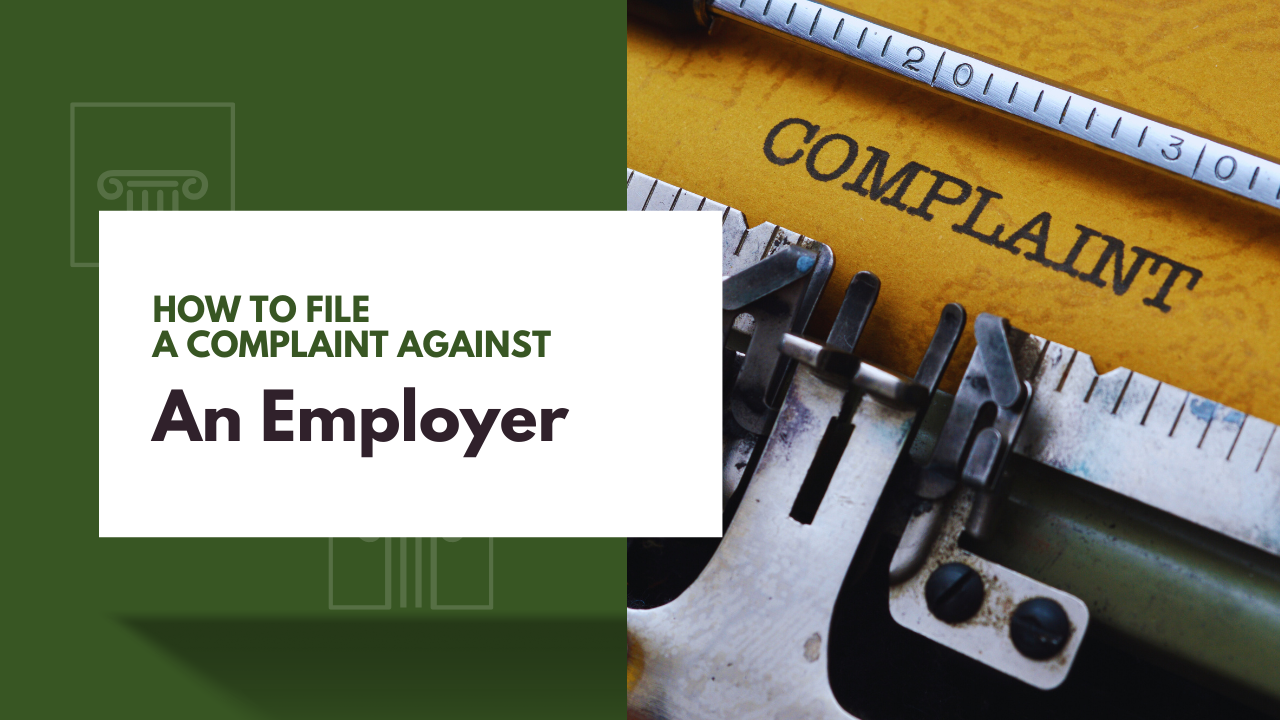
Saad Mirza
Hi! beautiful people. I`m an authtor of this blog. Read our post – stay with us

Saad Mirza
May 16, 2025
How to File a Complaint Against an Employer in Ontario: A Step-by-Step Guide
Workplace issues can happen to anyone-whether it’s unpaid wages, discrimination, harassment, or unsafe conditions. If you’re facing a workplace problem, knowing your rights and the right steps to take can make all the difference. Here’s a practical guide to help you navigate the process of filing a complaint against your employer in Ontario.
Know Your Rights as an Employee
Ontario’s employment laws are designed to protect you. The three main pillars are the Employment Standards Act (ESA), the Occupational Health and Safety Act (OHSA), and the Human Rights Code. Each covers different aspects of your work life:
• The ESA ensures you receive minimum wage, overtime pay, vacation pay, and proper notice or pay if you’re let go.
• The OHSA protects your right to a safe workplace and gives you the right to refuse unsafe work.
• The Human Rights Code prohibits discrimination and harassment based on protected grounds like race, gender, disability, and more.
Understanding which law applies to your situation is the first step in choosing the right path forward.
Steps to Take Before Filing a Formal Complaint
Before jumping into a formal complaint, it’s usually best to try resolving the issue internally. Start by talking to your supervisor or HR department. Sometimes, a conversation can clear up misunderstandings or prompt your employer to take your concerns seriously.
No matter how you proceed, document everything. Keep a record of dates, people involved, and what was said or done. Save emails, take notes after meetings, and keep copies of any relevant documents.
If your employer or HR does not respond, or if their response is inadequate, make a note of that too. This record can be crucial if you need to escalate the issue.
How to File a Complaint Based on the Issue
Employment Standards Violations (ESA)
If your issue involves unpaid wages, vacation pay, overtime, or termination pay, you can file a complaint with the Ministry of Labour. This can be done online or by mail, and you have up to two years from the date of the violation to file.
For example, one of our clients was offered only two weeks’ pay after years of service-far less than they were owed. We guided them through the Ministry’s process, and they received the full amount.
Health and Safety Concerns (OHSA)
If your workplace is unsafe, you have the right to refuse unsafe work. Report your concerns to your supervisor first. If the issue isn’t resolved, you can contact the Ministry of Labour’s Health and Safety Contact Centre at 1-877-202-0008. Complaints can be made anonymously if you’re worried about retaliation. After a report is filed, an inspector may visit your workplace to investigate and recommend changes.
Discrimination or Harassment (Human Rights)
If you’ve experienced discrimination or harassment based on a protected ground (such as race, gender, disability, age, or religion), you can file a complaint with the Human Rights Tribunal of Ontario.
You must file within one year of the last incident. The Tribunal can order compensation and require your employer to make changes. We’ve supported clients through this process, helping them gather evidence and present their case effectively.
Can I Be Fired for Filing a Complaint?
Many employees worry about losing their job or facing punishment for speaking up. Ontario law protects you from reprisal-meaning your employer cannot fire, demote, discipline, or otherwise punish you for asserting your legal rights or filing a complaint.
If you do face retaliation, you may have grounds for a wrongful dismissal claim or additional damages. We’ve represented clients who were let go after making a complaint, and in many cases, they were entitled to compensation beyond standard severance.
When to Involve an Employment Lawyer
If you’ve tried internal channels and nothing has changed, or if your situation involves wrongful dismissal, serious harassment, or discrimination, it’s time to speak with an employment lawyer. A lawyer can help you understand your options, gather evidence, and negotiate a fair settlement.
You have options if your rights are being violated at work. Start by understanding which law applies to your situation, try to resolve things internally, and keep detailed records. If that doesn’t work, file a complaint with the appropriate agency-and remember, you are protected from retaliation.

Author: Saad Mirza
I’m Saad Mirza, the founder of Thrive Law, a employment law firm dedicated to helping employees across Ontario navigate challenging job terminations and workplace issues.

